“We shape clay into a pot, but it is the emptiness inside that holds whatever we want.”- Lao Tzu
This is Part-2 of the two-part series on the timeless wisdom of Lao Tzu. Here is Part-1.
The Life Tips so far:
1. Knowing Who You Are And How To Become Truly Rich
2. Seek To Listen And Understand And Not Jump In To Speak
3. Take A Page Out Of Nature’s Manual and Slow Down
4. Aim For Personal Excellence
5. Change is Inevitable
6. Embrace Chaos and Uncertainty
7. Be Simply Yourself, Ditch the Rat Race And Comparison
8. Letting Go Instead Of Trying And Trying
9. Realize The Potential In You And In Others
10. Begin Moving
Let us begin with the rest of the post.
11. The Three Great Treasures
“I have just three things to teach: simplicity, patience, compassion. These three are your greatest treasures.”- Lao Tzu
Lao Tzu reminds us that that some of the great life lessons are ones that are the most simple.
Often, we believe that great lessons in life need to be profound like a revelation or an epiphany.
When we come across the simple lessons in life, we often disregard them as not being important.
For example, we say that the greatest treasures in life are material wealth, success, respect and power.
Psychology calls the externalizing and the continual striving for material enhancements, the hedonic treadmill.
We ditch the simple for the complicated and the profound.
“Manifest plainness, Embrace simplicity, Reduce selfishness, Have few desires.” – Lao Tzu
Lao Tzu challenges you to look at the greatest treasures in life from a different perspective.
Consider the different perspective:
- When you have a simple life and do not over complicate matters.
- When you begin to understand that the reason why you are not taking action is because of layers and layers of complexity.
- You realize that complexity prevents the main message to come forth and unfold.
- You look for the simple and focused way of doing things and being in this world.
- You begin to laugh and associate with simple things like gratitude, silence and laughter.
- You have great patience with yourself and with others and understand that things take their own time.
- You do the best that you can but beyond that, you allow things to happen by letting go of excessive attachment.
- You feel a deep sense of compassion for the self and your own journey.
- You understand that you have been giving yourself a hard time and allow a breath of calm and a blast of fresh air.
- You feel a deep kinship and compassion with the human condition and feel for the journeys of other sentient beings on their own paths.
- You begin to empathize and understand instead of criticizing and complaining.
“Trying to understand is like straining through muddy water. Do you have the patience to wait until your mud settles and the water is clear?” ― Lao Tzu
12. Consistency And How To Avoid Failure
“People in their handlings of affairs often fail when they are about to succeed. If one remains as careful at the end as he was at the beginning, there will be no failure.” – Lao Tzu
What is considered failure?
For many it is the disappointment that things have not come forth as they had hoped and planned.
For many, it is quitting just before they find their success.
It is giving up just before their goals are able to materialize.
Lao Tzu offers a simple explanation for failure in all things.
When we begin a new project, we are enthusiastic and ready to take on the world.
But over time, especially when the horizons of success and completion seem far away, we begin losing steam.
Our interest waxes and wanes and we find it difficult to cultivate the interest.
We cannot find the energy required to sustain the project in its most crucial time.
In other words, we lose faith and are ready to move on to the next big project.
Now there is of course nothing wrong with change. But if this quitting at the last moment is becoming a pattern, then you have a problem.
Action Tips:
Look at your patterns and recognize if you have a habit of quitting goals and projects.
Set up mechanisms to sustain the super sauce of life, which is enthusiasm.
Be careful and detail oriented at the beginning and also at the end of the project.
Have yardsticks and feedback of measurement of your work that is fair and balanced.
Ask people who are honest and unbiased of what they think of your progress. Then assess the feedback and actual results that you are receiving.
13. Being Flexible Is the True Key To Success
“The gentle and yielding is the disciple of life. Thus an army without flexibility never wins a battle. A tree that is unbending is easily broken.”- Lao Tzu
I love this life tip and analogy from Lao Tzu.
Nature takes the idea of flexibility to heart. You may have noticed that it is not the toughest and the most unbending that survive.
It is the trees and organisms that are supple or flexible and have the capacity to rapidly adapt to change that do the best.
In Arizona, there is a solid layer of bedrock called Caliche, sometimes several feet below the surface.
When someone plants a tree sapling without cracking a small hole in the Caliche in the areas where it is present, the results are often not good.
Years later, when the tree has grown big and strong, its root system is still shallow. When a strong storm passes by, the tree can get uprooted.
But the trees planted with a chance for their roots to penetrate the Caliche bend and sway to the rushing winds but hold their ground. They are flexible and grounded to survive the worst storm.
It is by no accident that the ancient practice of yoga takes a major inspiration of flexibility from the animal kingdom.
The downward facing dog, the camel pose, the crow pose, the crane pose, the eagle pose…well you get the idea. The yoga pose can be a metaphor for going through life with flexibility.
When we become flexible in a seated position in a mat, eventually we can carry that flexibility as a way of life.
Action Tips:
Practice gentleness and flexibility.
Flexibility can be of the body, mind and the spirit.
Be ready to sway and bend to the winds of change. Stay firm and rooted but allow some room to maneuver.
Have backup plans and several ways and perspectives of achieving your goals. Often having one way is not beneficial and not flexible.
14. How To Have An Intentional Journey
“A good traveler has no fixed plans, and is not intent on arriving.”- Lao Tzu
It seems we are all rushing somewhere. We want to get from point A to point B in the quickest and most efficient way possible. After we reach point B, we set our sights on C and D and so on.
But have you ever had the feeling that you were so caught up in the destination that you did not enjoy the journey?
Did you ever have the feeling that neither you enjoyed the journey nor you savored the destination?
After you achieved something, it did not bring the expected results of happiness and well-being. Instead, you felt hollow and unsatisfied.
Lao Tzu says that the good traveler understands that the destination is not the point or the goal. The goal is to savor and enjoy the journey as much as possible.
That is the reason why work feels intolerable sometimes. We want to reach the destination but hate the journey.
Action Tips:
Ditch the “conventional” idea of success as arrival to a destination and measuring everything.
You have a right to savor and enjoy every moment of the journey.
Realize that the big thing and the little thing here is to enjoy the journey.
Make plans but remember that expectations and having fixed plans can rob the joy of the journey.
Allow wiggle room to be pleasantly surprised by the journey. Allow and understand the possible unexpected turn of events.
Remove the hyper focus on the destination and change it to a wide-angle focus on the journey.
15. Everything Has Its Time And Place: Lao Tzu And The Power Of Relativity
“Thus, the wise person looks into space, and does not regard the small as too little, nor the great as too much; for they know that there is no limit to dimension.” – Lao Tzu
Everything is relative. The small may not be too little and the great may not be enough. Lao Tzu realized this inherent contradiction of life.
Lao Tzu reminds us that there is a great benefit to allowing all perspectives. The small and the great are all a matter of perspective and are relative. In fact, many times items that I have disregarded as being useless have been of great benefit to my goals.
Get beyond labeling and fixed beliefs about how you perceive people and the world around you. When you do that, you are open to the fields of possibility.
There is an old Zen story about the power of remaining open to all possibilities and the power of relativity.
Long time before, there was an old farmer who made a living by growing his crops.
One unfortunate day, his horse ran away.
Upon hearing the news, his neighbors expressed their sympathy to the old man and said it was bad luck.
The farmer replied that perhaps it was bad luck.
The next morning the horse returned. It brought a group of wild horses with it much to the surprise of the neighbors. They were quick to remark that it was great and wonderful luck.
The farmer replied that it could be good luck.
The farmer’s son tried to tame and ride one of the wild horses but got thrown and ended up breaking his leg. The neighbors again expressed their sympathy and exclaimed that it was a great misfortune.
The farmer said maybe it was misfortune.
Military officials then came to the village to draft all the capable young men into the army. Seeing that that farmer’s son had a broken leg, they passed him by.
The neighbors who were sad that their sons had to leave congratulated the farmer on his great fortune. “Maybe,” the farmer replied.
Action Tips:
Do you have a habit of quick relabeling things and people as small, big, useless, useful and so on.
Realize that everything is relative.
Things are context based. A double sided tape may have no benefit in your project but might be invaluable in the next.
Things and opportunities are also temporal or time-based. What might be small and not useful in a particular time might have a use at a later on time.
16. The Importance Of Giving And Creating Value
“If you would take, you must first give, this is the beginning of intelligence.” – Lao Tzu
Lao Tzu reminds us of the wise balance of life. For optimal balance and happiness, we need to take and give back in return.
When this give and take becomes disproportionate, problems arise.
When we take too much and give back little, others become wary. They become disillusioned about our motives.
When we give too much and refuse to take back in return, we become fatigued and experience burnout.
Research has shown that prosocial spending and giving have a lasting impact on our happiness and well-being.
Action Tips:
Ask what value are you creating for others?
What is the legacy that you would like to leave behind?
How do you want others to remember you? Someone who always took or someone who gave back in return?
17. The Advantage Of The Softest Things And Non-Action
“The softest things in the world overcome the hardest things in the world. Through this I know the advantage of taking no action. That which has no substance enters where there is no space. This shows the value of non-action.” – Lao-Tzu
Water always has a way to find the path of least resistance. Water can find the little nooks and crevices and still flow downstream.
Water flows through bedrock and it flows through the less solid earth. Water is soft and pliable and yet it can weather and erode great rock formations.
Lao Tzu says that we should not underestimate the power of the soft and the sublime. We might motivate the self to take action every waking moment. But we need to realize that non-action is as important.
“Teaching without words, performing without actions: that is the Master’s way.”― Lao Tzu
When you are tightening a screw or the lid of a bottle, you know that over tightening is counter productive. All you end up doing is unthreading the screw or breaking the lid.
When we have done our best, our doubts and perfectionism may prompt us to make our work a little better. It is beneficial to remember Lao Tzu’s words of taking no further action or doing less.
Action and non-action are like Yin and Yang. Both are essential to orchestrate the dance of life.
“The Tao of the sage is work without effort. Practice non-action. Work without doing.”- Lao Tzu
Action Tips:
Do less, not more.
Do your best and then practice non-action even if goes against the fabric of your beliefs
Do not over tighten the screw and over-work your life.
If work and taking action stopped being fun and enjoyable, slow down and reprioritize.
“The Tao abides in non-action, yet nothing is left undone.”- Lao Tzu
18. Practicing Deep and Unconditional Kindness
“Kindness in words creates confidence. Kindness in thinking creates profoundness. Kindness in giving creates love.” – Lao Tzu
Be kind in spirit.
Be kind in words.
Be kind in actions.
Be kind in thoughts.
Be kind to the body.
Be kind in giving.
Be kind with the self.
Be kind with others.
Be kind because you know it feels great.
Be kind because you know that it can make someone’s day.
In the end, kindness and compassion are the qualities that really matter.
“The best fighter is never angry.”- Lao Tzu
19. Accept And Believe In The Self
“Because one believes in oneself, one doesn’t try to convince others.” — Lao Tzu
The power to believe in the self may mean the difference between success and failure.
The capacity to believe against all odds defines your forward motion.
Many of us do not feel like our opinions and beliefs matter. When we have a basic lack of respect for what we think and feel, it reflects on the outside.
How does a lack of self-belief manifest?
- We try to please others.
- We look at their every move and action to see if we are good enough.
- We second guess other people’s motives and thoughts.
- We try to make up a lack of self-belief by hoping and expecting external confirmation.
- We seek and ask permission to be ourselves, and to sing our own song.
- We get disappointed when others pretend to get disappointed in us.
- We feel shame and feel like we are not good people when others judge us.
“At the center of your being you have the answer; you know who you are and you know what you want.” – Lao Tzu
Lao Tzu says that the easiest way to become a prisoner to others is to obsess and care too much about what others say.
Action Tips:
Develop an unshakeable core of self-belief.
You are good enough and your beliefs and opinions matter.
Remember that everyone has doubts but the question is if you will allow them to rule your life.
“Care about what other people think and you will always be their prisoner.”― Lao Tzu
20. Water Your Dreams With Optimism And Solutions
“Be careful what you water your dreams with. Water them with worry and fear and you will produce weeds that choke the life from your dream. Water them with optimism and solutions and you will cultivate success. Always be on the lookout for ways to turn a problem into an opportunity for success. Always be on the lookout for ways to nurture your dream.” – Lao Tzu
Research has shown the many health and opportunity benefits of an attitude of deep and lasting optimism.
Research has also shown that people who feel lucky end up finding more opportunities than those who pre-suppose their ill luck.
Lao Tzu is right on the mark when he asks us to water our dreams with optimism and solutions.
In fact, being solution and engagement-oriented may be the single most important driving force behind disruptive innovation and great success. A lack of engagement and allowing worry, tension and fear to drive the day gets counter productive.
Do not take my word for it or even Lao Tzu’s. Study the habits and the behaviors of the most successful people that you know.
How much time do they waste in pessimism, what can go wrong and being stuck in their imaginary fears?
21. The Winds Of Trouble Do Not Last Forever
“A violent wind does not last for a whole morning; a sudden rain does not last for the whole day.”― Lao Tzu
Lao Tzu is right when he says that like everything else in life, troubles and setbacks do not last forever.
The day changes into night and the night changes back into day.
The storm clouds threaten and then pass.
The failures and setbacks appear in our life but they too fade away into the sands of time.
It is dry someplace and it rains some other place and then the opposite happens.
We forget this simple message when we are in the midst of a difficult situation.
But as we embrace change, letting go, action and non-action, this too passes into the sands of time.
Action Tips:
Get a perspective on your current setbacks and troubles.
Remember that we have a preference for negativity and dwelling on the negative.
Bonus Tip 22. The Power And Wisdom Of Humility And The Beginners Mind
“All streams flow to the sea because it is lower than they are. Humility gives it its power.” – Lao Tzu
Being humble is a sign of great wisdom and knowledge. It is also a sign that we have opened our minds to continual and unconditional learning. We have opened our mind to what the research calls “the learning mindset.”
It is impossible to know everything and also impossible to know more than the collective. When we are open to the possibility that we have more to learn, we are more aligned to find out the holes in our knowledge.
“The wise person is one who, knows, what they do not know.”- Lao Tzu
Bonus Tip 23. Avoid Seeking Excessive Praise and Rewards: The Dilemma Of Extrinsic Motivation
“The higher the sun rises, the less shadow it casts; even so, the greater is the goodness, the less it covets praise; yet cannot avoid its rewards in honors.” – Lao Tzu
Avoid external motivations and rewards as much as possible. Motivation research is showing that the motivation that is intrinsic or comes from the inside is more effective than the traditional “carrot and stick” model.
While not a problem in itself, extrinsic motivation becomes an issue when we do things just for the sake of validation or the reward.
When our actions are motivated by words of praise from others, we get stuck in a cycle of approval, doubt, and expectations.
This is the end of the post on the timeless wisdom from Lao Tzu. I hope you enjoyed reading it as much as I have enjoyed writing it.
The floor is open to you now.
Please let me know in the comments below and on social media about which idea resonated most with you and why?



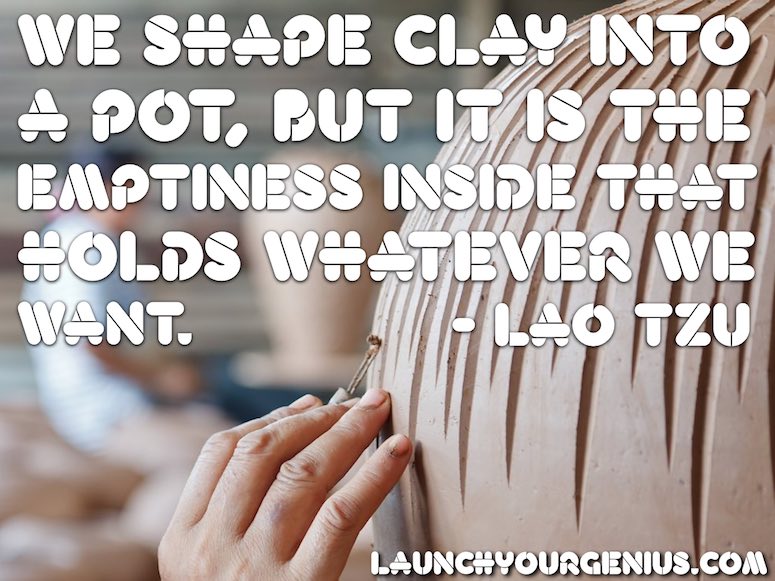

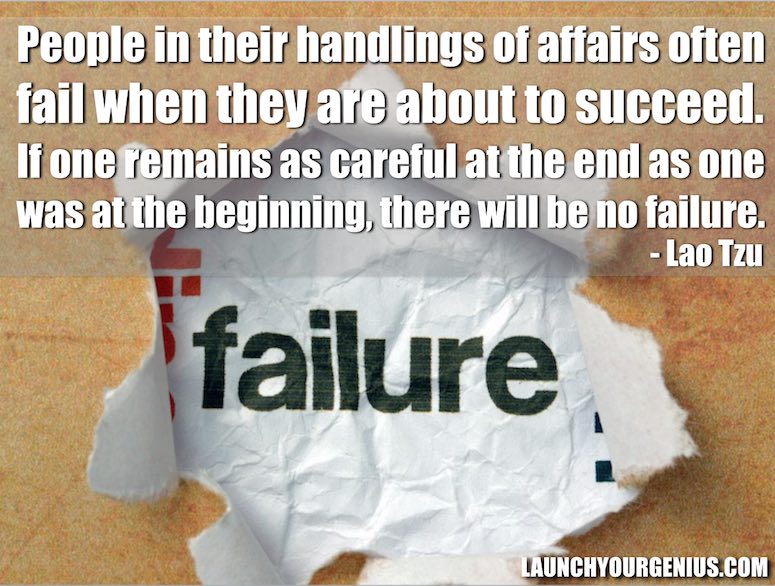
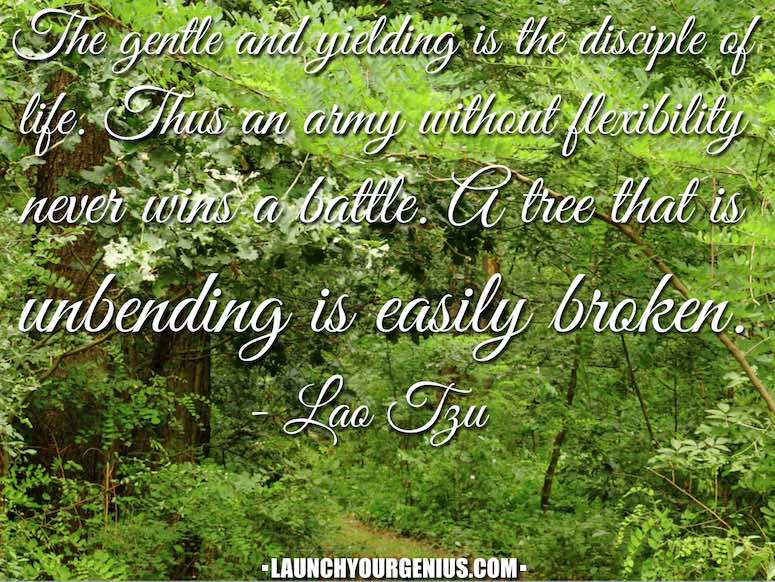
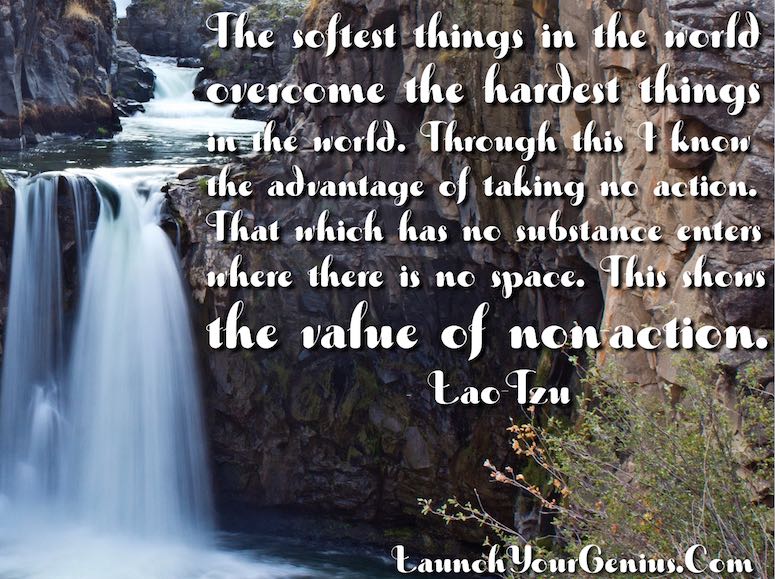
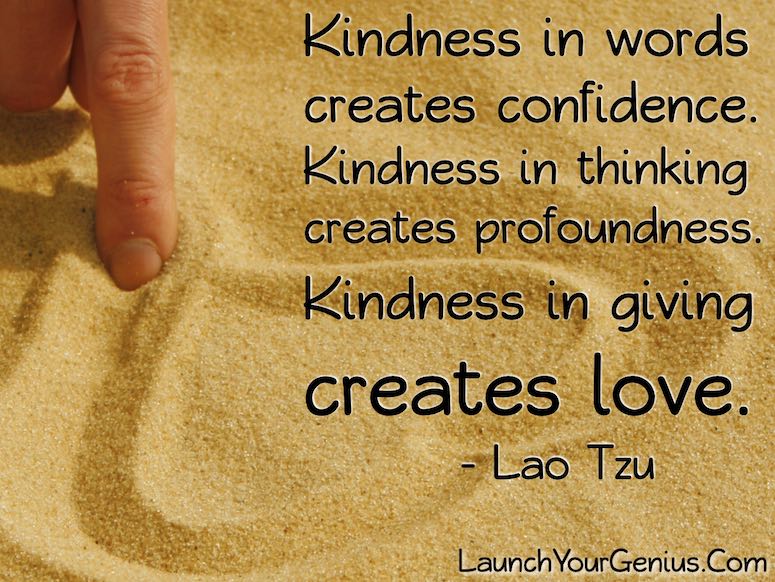
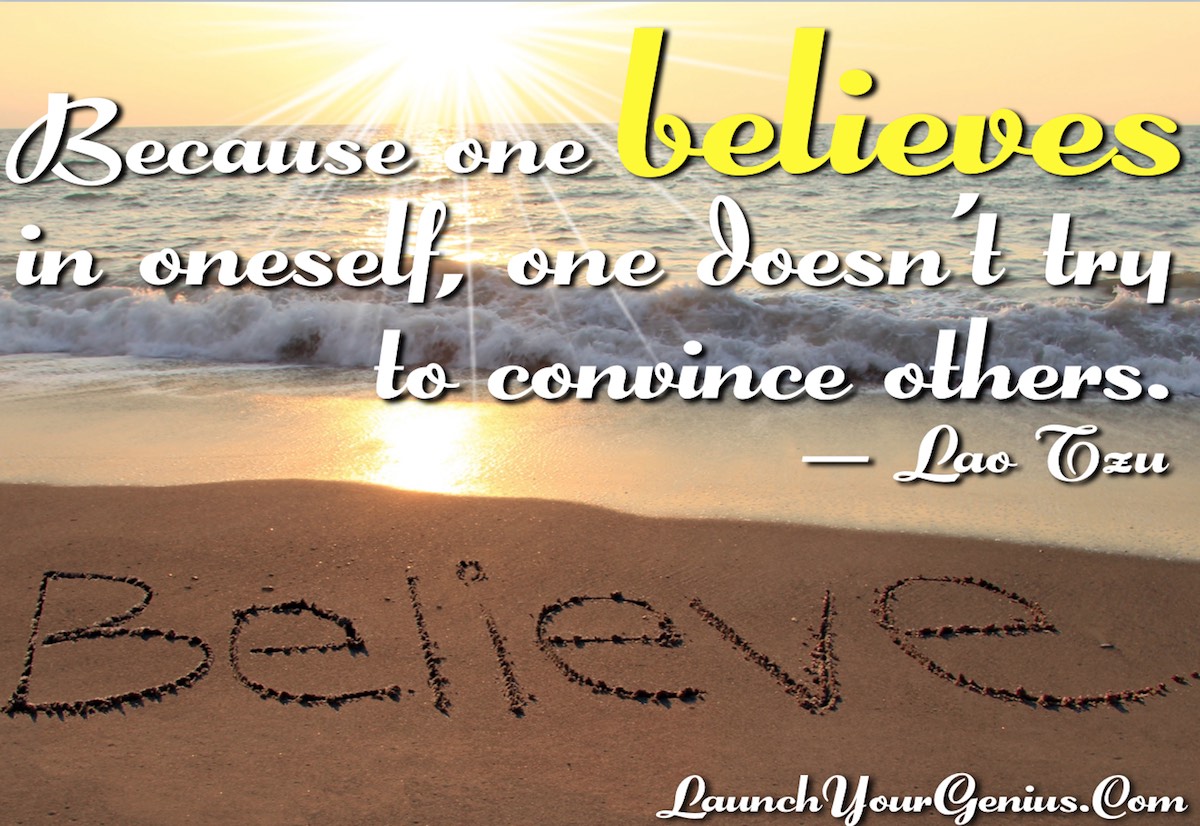
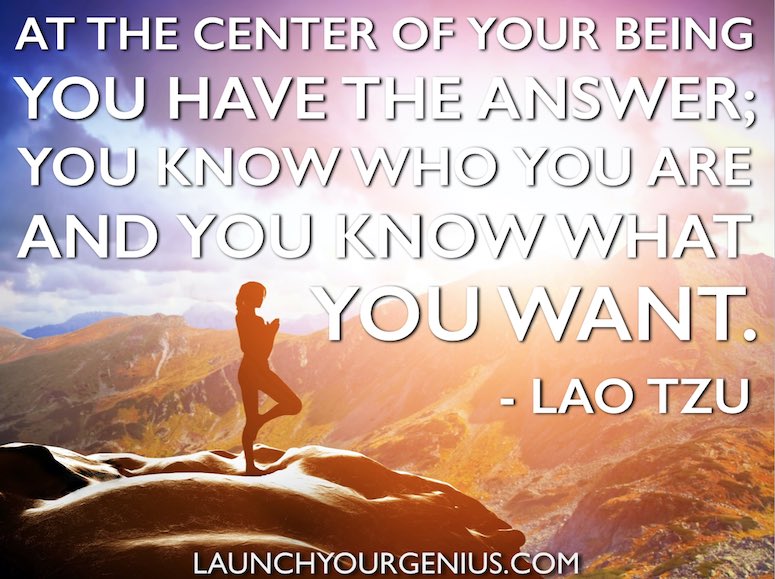


Comments